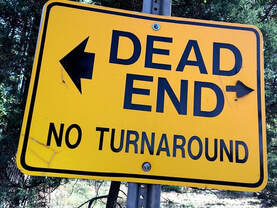 No Way Out! No Way Out! It is a common theme on social media, for authors to bemoan the fact that they have got their characters into a certain situation but can’t find a way out for them. I guess it is a sort of “writer’s block”, but it is one that is avoidable. Authors can be split into two broad types (at the risk of stereotyping); there are the “plotters” and there are the “pantsers”. 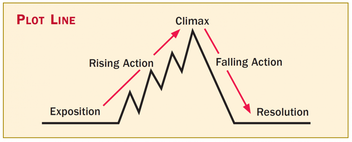 Plotters plan their book in advance, breaking it down to chapters, then scenes and even to paragraphs, depending on how focused they are on the fine detail. Some plotters spend far more time planning their books than they do actually writing them (OK, maybe an exaggeration, but they do spend a lot of time on planning). We are not here to talk about plotters. If you are one then move along, there is nothing for you to see here. (OK, stick around and read about how miserable things sometimes get for pansters if you want to). Pansters “fly by the seat of their pants”, hence the name. They sit down in front of their PC, laptop, tablet or phone (some even use a pencil and paper) and just start writing. They have no idea what is going to happen in their book until the words appear in front of them.  Life as a pantser! Life as a pantser! I am a pantser and proud of it. I think I’m more creative because of it. And yes, sometimes I get myself into a position where I don’t know what is going to happen next. But I have learnt from that, so it happens a lot more rarely than it used to. Which brings me to the subject of this week’s blog, which is how pantsers can save themselves a lot of anguish and a lot of time. I now have one simple rule that I live by when it comes to writing: never put your protagonist into a situation unless you know how you are going to get them out of it. 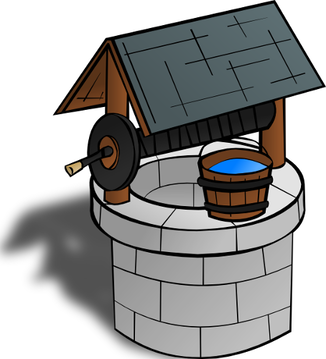 So, your protagonist gets into a fight and gets thrown down a well. Good bit of drama. No problem. But if you don’t know how they are going to get out, you could end up staring at that screen for a very long time. It could result in you going all the way back to before the fight started and re-writing the whole chapter so that this time they don’t get thrown down a well. Which means you lost a whole lot of time by not thinking about it first. So, here is a hypothetical scenario, as I would play it out in my head. Me. “I’m going to ramp up the action so that my protagonists is going to get into a fight.” Me in my head. “Good idea. How is it going to have a dramatic ending?” Me “He’s going to get thrown down a well, which is too deep for him to get out. And the antagonist then cuts the rope that’s attached to the bucket and throws it into the well with him, so he can’t climb up the rope.” Me in my head “Sounds good, but he’s eventually got to get out, so how will he escape?” Me, “Someone will come past, hear him calling for help and lower a rope down to him and haul him out.” 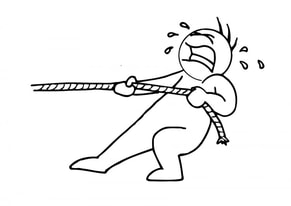 Now, you may think that’s good (or maybe you don’t). But is it believable? I mean, is it normal for people to just wander past carrying a bit of rope long enough to reach the bottom of a well? Yes, we expect our readers to suspend their disbelief, but we can’t expect them to believe in miracles (unless it’s a religious story, of course, where miracles are a routine explanation for everything). So, I now have to think about how this person is going to turn up out of the blue, carrying the rope. Me in my head “Where did this bloke come from and why is he carrying a rope?” Me (after a lot of head scratching) “He’s a bellringer in the local church and he has to replace the rope on one of the bells. He is just on his way to do that when he heard my protagonist calling for help.” Me in my head. “OK, that’s believable. Go for it.” It may be necessary to go back a few pages, or even a few chapters, to introduce the bell ringer, to add credibility to the plot. Maybe we’ll see him with his wife (it has to be a he so he is strong enough to haul a fully grown man out of a well), having breakfast and discussing what he is going to do that day, then we follow him on his walk to the church, which takes him past the well.  Guess which character is going to die! Guess which character is going to die! But that is easier to do than going back to square one because I haven’t given the matter any prior thought. If you are a pantser and all that sounds like a bit of a chore, then OK. It’s your story, write it your way. All I’m saying is that you can make life easier on yourself by not going hell-for-leather all the time. Just stop and think about what will happen next, especially when it comes to putting your protagonists in the way of danger. And if you think all the above doesn’t apply to you because you write romance, or another genre that doesn’t involve throwing characters down a well, think again! You will be putting your characters into unsuitable relationships from which you then have to extricate them. That is a metaphorical well. Some types of book make it easier to find additional characters at the right time than others. I’ll use a well known TV series to illustrate. In the original Star Trek series, we only saw a small number of crew members. But there was apparently a crew of 430. That made it easy to introduce a new face when it was needed. I’m sure we can all recall episodes where a previously unknown crew member joined a landing party, only to die almost as soon as they were transported to the planet’s surface. But that minor character was important, because his death (it was nearly always a man) alerted the rest of the landing party to danger and ratcheted up the drama levels.  Other settings allow this as well. Basically, any plot that is set in a large organisation: hospital, military, school, police, FBI, CIA et al provides scope to introduce minor characters when they are needed. When writing a book with a smaller, tighter setting, it is much harder to introduce a new character. For example, in Robinson Crusoe, Daniel Defoe has to concoct a plot about cannibals coming to his island to kill and eat the character who would become Friday. When reading that as a child, I found it hard to believe. I mean, why would cannibals transport a prisoner across miles of dangerous ocean (Crusoe’s ship had already been sunk in a storm to leave him stranded) , when they could do what they wanted to much closer to where they captured him. Indeed, they could even do it at home. Credibility is important when introducing characters, especially if they have an important part to play in the plot, even if they’re only going to be in the book for a short segment..  Beware of remote locations Beware of remote locations So, that is something for you to think about if you are setting your story in a remote location, because drama means threat and threats have to be countered and the protagonist may not be able to counter the threat without help. In the film The Revenant (2015) the protagonist, Hugh Glass (Leonardo DiCaprio), teams up with a native American who saves his life when he becomes feverish, so this is a common trope and one that must be planned in advance. Even if it is only 30 seconds in advance. Finally, a word on the use of magic to solve your protagonist’s problems, for you pansters who write fantasy. I include miracles in that as well, even though writers of religious books wouldn’t consider them to be magical. However, the same problem exists. 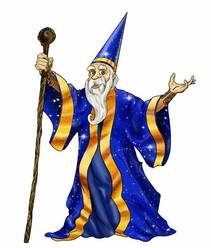 If the only way out of their predicament for your protagonist is to use magic, then it’s bad idea. If magic is always going to be the solution, there is no point in reading the book. There is no drama for the reader if they know that no matter what happens, the protagonist is always going to be saved by magic. Magic has its place in fantasy, but only when magic is being used against it. Even then it should come at a cost to whoever is using it, so that further use is discouraged. Even Shakespeare, who occasionally used a bit of magic, knew to use it sparingly. OK pansters, lesson over. And all you plotters can now stop gloating and get back to your flow charts. If you have enjoyed this blog, or found it informative, then make sure you don’t miss future editions. Just click on the button below to sign up for our newsletter. We’ll even send you a free ebook for doing so.
0 Comments
This week we hand over our blog page to one of our authors, who is reviewing a book.
The views expressed in this blog are those of the blog's author and not necessarily those of Selfishgenie Publishing. 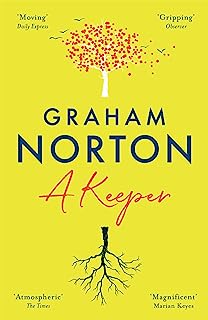
Most Brits and Irish will know Graham Norton as an Irish comedian, actor, TV chat show, Eurovision presenter and radio broadcaster.
I probably missed something there, so I hope he’ll forgive me. But he’s also an author, and a rather good one at that. I started reading his books on the recommendation of a relative (Irish, naturally) and started with his first book, “Holding”. I didn’t review it because it had already been turned into a TV series, so many people will already know about it. In my opinion the book was superior to the TV version, but I’m one of those people who always thinks the book is better than the film (or TV) version so I may be biased. However, I couldn’t wait to review “A Keeper” which is Graham Norton’s second book. It’s a cracker, as the late Frank Carson (another Irish comedian) used to say. While “Holding” was a crime drama, with an out-of-his-depth village Garda (police) officer investigating a murder, “A Keeper” is very different. It hasn’t got any murders in it, but there is a lot of death. An awful lot of death. So, to the plot. Basically it is a detective story, but without any police or detectives. If that sounds odd, don’t worry. Just go with it. Elizabeth Keane came from a small town in Ireland and, like many Irish people before her, went to America, married and raised a family before getting divorced (not everyone who goes to America gets divorced, I know, but she did). She returns to her birthplace (so she thinks) to take care of family business which she has been too busy to attend to in the years since her mother died. She finds a box with letters addressed to her mother, Patricia, from around the time of her birth, which start to reveal secrets about her family. Most importantly, the letters are from her father, who she never knew, as he died not long after she was born. Around the same time, Elizabeth discovers that her son, Zach, who is supposed to be staying with his father in California, isn’t actually with him, having gone off on some adventure of his own. Worried about her son, she realises that there is nothing she can do to track him down from where she is. Her ex-husband persuades her not to cut her visit short and promises to look into the boy’s whereabouts and get back to her. Needing a distraction and intrigued by the letters, Elizabeth decides to look deeper into her past. From there on the secrets start to be exposed, leading the reader down a pathway to the past. But every time this reader thought he knew what was going on, Norton hit me between the eyes with something else which made me completely re-think my theories. I can tell you no more about the plot without spoiling it for you and I wouldn’t want to do that. But, believe me, every time you think “Ah, I know what’s happening here,” Graham Norton smacks you around the head with another surprise, as much to say “Oh no, you don’t know what’s going on”. Graham Norton has a very easy style of writing which makes the book enjoyable to read. He handles the descriptions of both people and places very well. The characters are beautifully drawn and highly believable. Being familiar with the part of Ireland where the book is set means I had no trouble hearing the characters voices in my head, complete with Cork accents (the Irish county, not the thing you take out of a wine bottle). If you are less familiar, just imagine the voice of Father Noel in the episodes of “Father Ted” in which he appeared, and you’ll get the idea. I realise that might not mean much to non-British and Irish readers, so you may need to google it. To save you time I found this on Youtube. Father Noel is the manic one and is played by the author.. Overall, this book is a really good read. While it will make you feel sad some of the time, and really worried about Patricia all of the time, the overall message is uplifting. I highly recommend "The Keeper" by Graham Norton. You can find out more about the book by clicking the link below. If you have enjoyed this blog, or found it informative, then make sure you don’t miss future editions. Just click on the button below to sign up for our newsletter. We’ll even send you a free ebook for doing so. 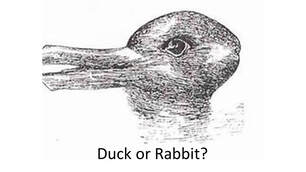 Once again I’m indebted to the users of Twitter for the inspiration behind this week’s blog. The theme is how perceptions don’t necessarily match up to reality. The Tweet(s) in question relate to an author bemoaning the fact that someone had posted rude 1 star reviews about two of her books on Amazon and she feared this was impacting on her sales. They were also undermining her confidence and making her ask herself if she should continue working on her third book. I Tweeted back (sympathetically I hope) that reviews weren’t everything and, at the end of the day they are an opinion, and no author can please everyone. If they had valid criticisms, then it was a good idea to learn from them, but otherwise forget them. There are also people who delight in posting 1 star reviews, just because they can. (I know, we live in a truly troubling world) 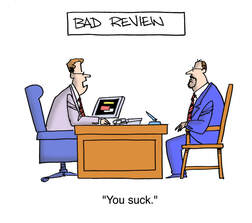 In her reply the author posted a screenshot of her review data, the yellow bars Amazon uses to show the percentages of reviews for each star rating. And it was highly revealing, but not in the way she thought. Out of around 240 reviews, over 60% were 5 star and another 20% were 4 star. I pointed that out, suggesting the (approx) 10% of 1 star reviews weren’t something to worry about. The number of 4 and 5 star reviews would be far more influential than the 1 star ones when it came to decisions about purchasing. She didn’t agree with me, suggesting that her KENP reads had dropped since the 1 star reviews had been posted. I suggested that she would need a bit more evidence than that in order to draw such a conclusion. Perhaps her KENP reads had dropped because her marketing activity needed refreshing. I think I may have persuaded her, because she did say she would think about that. Or maybe she was just trying to shut me up, which is a real possibility. 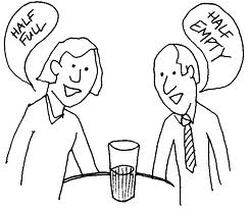 But it is easy to take an isolated bit of data, such as reviews, and interpret them as something they aren’t. Looking at her numbers, I would be using the percentage of 4 and 5 star reviews to trumpet the success of our books, in order to encourage new readers to try them. That screenshot she posted tells a far different story to the one she was seeing, as far as I was concerned. Because 80% reviews at that 4 and 5 star level are a real sign of success, not failure. It is always dangerous to take two bits of data, put them side by side and assign cause and effect from them. In this case a couple of 1 star reviews put alongside a drop in KENP reads equals a cause and effect. 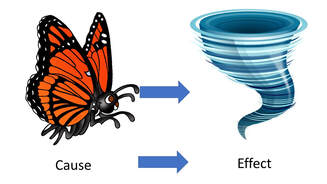 Cause and effect? Cause and effect? A third bit of data is needed in order to see if that is a valid conclusion. In this case the third bit of data would be a measurement of marketing activity: social media posts, advertising spend etc. If there is a lot of marketing activity but a drop in KENP reads, then the author may be right in her original conclusion. But if there is a drop in marketing activity at the same time as a drop in KENP reads, then perhaps it isn’t the 1 star reviews that are the cause, perhaps it is the lack of marketing. It is very easy to let our perceptions and emotions get in the way of interpreting our data. In this case it is possible that the author is (a) underconfident and (b) sensitive to criticism. I can’t prove that because I haven’t got all the data available, but it seems to be a reasonable conclusion to draw on the basis of what she said in her Tweets. 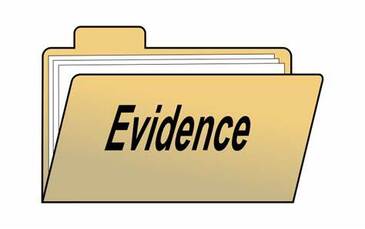 That under confidence, combined with the sensitivity, led the author to draw a conclusion that supported her perceptions and, despite what Lee Atwater may have said, perception is not reality, it is only the perceiver’s reality. Perception may be reality, but it isn’t actuality (Bill Cowher) and you have to be able to tell the difference if you want to market your books effectively. In this case it was the perception that 1 star reviews were affecting KENP reads, when the actuality might be a lack of marketing or perhaps another, undiscovered, reason. As statisticians will tell you, correlation does not imply causation. More evidence is needed. So, if you want to diagnose problems such as drops in sales levels, what can you do?  The best thing is to use several different types of data alongside each other and see what, together, they are telling you. KDP provides you with a lot of information on sales and KENP, but it doesn’t tell you anything about your marketing activity. This means that you need to have some measurement of marketing activity that you can analyse. If you use paid advertising, there is a mountain of data that can be obtained in relation to the performance of your ads. The most important bits are conversion rates. Eg how many impressions (views) did your ads get and how many clicks on the links did that convert to. Then how many of those clicks were converted to sales. The experts suggest you should be expecting at least a 10% conversion rate of link clicks to sales to consider an advertising campaign to be successful. But if you don’t use paid for advertising, you only use social media, you have to look elsewhere for your data. But the same principles apply. How much engagement did you get for the social media posts that pitched your books? How many clicks on the links etc.  The lower the numbers are, the less likely it is that you made sales or KENP reads. If you got high engagement levels but low sales, it means that readers looked at your book but chose not to buy it and there are many reasons why that may be. Reviews are one of them, of course, but they aren’t the only one. There is your cover, the blurb and the ‘look inside’ portion of the book as well. I would say that all three of those are a more likely reason for a reader not buying than having 10% 1 star reviews when 80% are 4 and 5 star. I’m not saying reviews aren’t important. Readers often send us important information tucked away in a poor review and that information can be used to improve writing. But, as I said before, a review is just an opinion and, in some cases, it isn’t even that. It may just be some poor soul being nasty because it makes them feel good. And that contaminates the data, just as an author getting their Mum to post 5 star review contaminates the data. But importantly, don’t let perception become your reality if you aren’t sure it is also the actuality. Correlation isn’t the same as causation (well, sometimes it is but that is a whole different blog). If you have enjoyed this blog, or found it informative, then make sure you don’t miss future editions. Just click on the button below to sign up for our newsletter. We’ll even send you a free ebook for doing so.  I think it is fair to say we get a lot of our ideas for blogs from Twitter and other social media sites, especially those used by authors. Be careful what you post, because you might well get a mention here. Not by name, of course. We would never do that. So it is this week, with a Tweet we saw a few weeks ago from an author (we sometimes write our blogs several weeks in advance of their publication). The Tweet was actually in two parts. The first part related to the way an author’s book sales had fallen off over recent weeks. By ‘sales’ we also mean KENP read using KindleUnlimited etc. A blog we posted a couple of weeks ago covered some of the reasons why sales vary on a seasonal basis, so we won’t cover that ground again (scroll down a bit if you want to find out more). But, of course, it’s not just the season of the year that affects sales.  We like to think of book sales a little bit like the way we think about tending houseplants. If you give a houseplant just the right amount of attention at just the right time, it should flourish. Well, a healthy plant in a disease free environment should live a long and happy life if it is given the right care and attention. But if you don’t give the plant the right care, or enough attention, or you give it at the wrong time, it will die. The same applies to giving it too much attention. The phrase ‘killing with kindness’ may have been invented for houseplants (if it wasn’t, please don’t email to tell us – put it in a blog of your own).  So it is with marketing a book. Given the right attention at the right time, your books should still sell even if seasonal factors are against you. That’s providing they are readable, of course – it’s hard to sell a poor quality book, ie one that has a ‘disease’. If you don’t do enough marketing or you do it at the wrong time or in the wrong way, your books won’t sell. And you can do too much marketing, killing the book with kindness so to speak, because readers get fed up with seeing your marketing efforts. Our response to the Tweet we saw was to suggest the author think about taking a look at her marketing strategy to decide what might be needed to lift her sales. The second part of the Tweet was about the author’s fixation with checking her sales data on KDP. She seemed to be looking very five minutes (I may be exaggerating) but she knew it wasn’t healthy.  For Indie authors I can quite understand the need to constantly check sales data. Sales provide validation for the author that their book is ‘good enough’. An author who has an agent or a mainstream publisher doesn’t need that sort of validation. They have already had their fix by getting the agent and/or the publishing deal. But for Indies there is little other than sales data to tell them that readers like their books. Reviews are the other form of validation, of course, but they are opinion based and therefore subjective, whereas sales data is empirical. Numbers don’t have an opinion. To paraphrase an old business saying: reviews are vanity, sales are sanity. 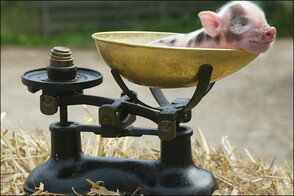 You don't fatten a pig by weighing it. You don't fatten a pig by weighing it. But you don’t fatten a pig by weighing it, as the saying goes (apologies to vegans, Jews and Muslims). Weighing your pig tells you if it’s gaining weight, but if you aren’t using that information to adjust your pig’s diet, then knowing its weight doesn’t achieve anything. OK, it’s a heavy handed metaphor (it was a heavy pig) but it makes the point. Knowing your sales data doesn’t sell more books. Knowing your sales data tells you whether or not your marketing strategy is working. If you aren’t making sales, or not as many sales as you think you should be making, then that is telling you to look at your marketing strategy so you can change it to make more sales. But if you make changes to your strategy, you have to give them time to work. Checking the figures every five minutes doesn’t help. It may just lead to frustration and, in extreme cases, it may actually be harmful to mental health.  By marketing strategy, we don’t just mean your advertising or social media posts. Book covers and blurbs can both have an effect on sales and need to be quality checked to make sure they are doing their jobs. The “look inside” feature on Amazon is also part of your marketing. If you don’t capture the reader’s imagination in those few free pages, you may not make the sale. The way you word your social media posts, what sort of images you use and a whole raft of other considerations also play their parts. We blogged about all of that last autumn, so we won’t go into those again today. If you want to know more, check out our archives under the "marketing" heading. So, Indie Author who inspired this blog, we hope we have reassured you that checking your sales data is actually quite normal. But we hope we have also encouraged you to take the information provided by that data and make use of it, so that your sales will look after themselves and you don’t have to check them so often. If you have enjoyed this blog, or found it informative, then make sure you don’t miss future editions. Just click on the button below to sign up for our newsletter. We’ll even send you a free ebook for doing so.  Here at Selfishgenie we try not to mention politics or religion in our blogs. It’s not that we don’t have opinions on those subjects – we’re human (honest, we are) so of course we have opinions. No, it’s that if we express our opinions we are pretty sure that we will alienate a considerable number of our readers. It doesn’t matter which side of the discussion we are on, we are going to alienate the people who are on the other side. And that is bad for business. If we alienate people, they may decide that they want to punish us for our views by not buying the books we publish. 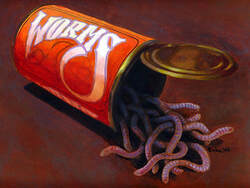 Are you opening a can of worms? Are you opening a can of worms? If they do that, however, they aren’t just punishing us, they punish our authors and that’s wrong, because those others don’t necessarily share our views. In fact, I know of a couple of our authors that have opposing views, but we manage to get along amicably anyway. So, the people that are trying to punish us actually end up punishing people who agree with them. It’s a strange world, isn’t it? But, of course, that brings into question how Indie authors handle politics and religion, and it can be very bad for sales. I include in this views on climate change, race, homosexuality, transexuals, conspiracy theories, vaxxing, and a wide range of other issues which have political or religious implications. 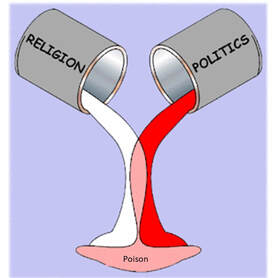 A poisonous mixture! A poisonous mixture! Every time we post something on social media, it tells the world a little bit about us. And some of the things we say have the power to alienate people. It doesn’t matter that they are our sincerely held beliefs. It doesn’t even matter that what we say may be true. All that matters really is that it has the power to affect book sales. I know there are authors who struggle with this. They have strong beliefs and they want to express them either to support or oppose whatever it is their beliefs are about.  But some of the people who take an opposing view read those Tweets and think ‘I don’t agree with them, therefore I won’t enjoy their books if I bought them, so I won’t buy them’. It may be an absurd view, but that doesn’t stop people taking it. I once overheard someone say that if they had known that a certain author held certain political views, they would never have bought their books. The person they were talking to asked them if they had actually enjoyed the books, to which the first person replied that they had. You see how ironic that is? Even though they had enjoyed the books, they wouldn’t have bought them if they’d known the political views of the author. Absurdity in the extreme. But I’m pretty sure that person isn’t an isolated example.  Then there are the political “discussions” people get embroiled in. Some of them get quite heated; insults get thrown around and generally the people involved never come out of it looking good, no matter how valid their arguments. Again, if one of the participants is an author, it won’t help their brand image. No one knows how many people are viewing those social media arguments and taking note of what is being said, so the people involved never know how much harm they are doing to their “brand”. And, of course, it is there forever. Even if it is deleted by one of the parties, it can still be found on a server somewhere.  Some people would rather burn books than read them - even yours. Some people would rather burn books than read them - even yours. The other side of this coin is the expression of political or religious views in books. There are times when that is appropriate for those to be featured in novels, of course, but there are times when it isn’t. It is possible for some books to use sensitive subjects and become bestsellers, such as “To Kill A Mockingbird” and “Last Exit To Brooklyn”. However, it isn’t possible to know in advance how books featuring these topics will be received and for every Booker/Pulitzer prize winning bestseller there are a thousand books that sink like lead balloons. 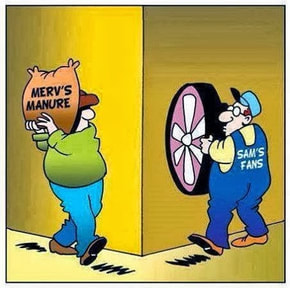 If you are writing books aimed at a specific audience who are likely to share your views, then writing about religion or politics (or the rest) is perfectly OK. You aren’t going to alienate people who agree with you and it doesn’t matter if everyone else is alienated because you don’t expect them to buy your books. And you will soon find out how many people support your views from the number of sales you make. But if an author is trying to find a broad audience who have a wide range of views on politics and religion, including sensitive topics in novels has the power to make the reader throw their book at the wall and you can be sure they’ll never buy another one by the same author. So, there are two different bear traps to consider when you are writing your book.  If you are a big name author you can probably ride out the storm created by expressing your views in public. I could list a dozen authors who have created social media storms on a range of issues and their careers haven’t suffered. However, I know of one big name who can't now get a job cleaning sewers because no one will employ him anymore. He’s an actor. He made his political views public and it has ruined his acting career. Can you, as an Indie author, take that risk? Your career could be over before you’ve even sold your first book. Not only that, but everything you say on social media remains there forever, somewhere, lurking and waiting to be exposed by someone with an axe to grind. When you are better known, as we all hope to be, it can also come back to haunt you. Even if you have modified your views over the years and you no longer believe as you did back in the day, no one will believe you. After all, we all know that leopards can’t change their spots, don’t we? 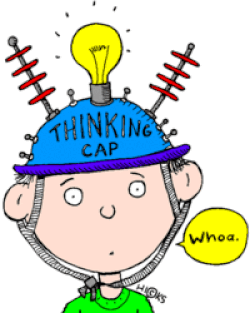 Of course, people can (and do) change, but the people who are out to embarrass you will assert that you haven’t changed, and other people will listen to them because it will be hard for you to prove that you have changed. The only way you will be able to restore your reputation will be to hire a very expensive PR agency to give your public image a make-over and nobody wants to have to spend that sort of money. As I said, it doesn’t matter which side of the argument you are on, the people on the other side of it will either stop buying your books or, worse, will try to take you down for having the temerity to express your opinions. Of course, there are times when you can introduce politics into novels with broad appeal. For example, in novels set during the 1930s and 40s, making your protagonist an anti-fascist is fine. Similarly, for books set during the Cold War it would be OK for them to be anti-communist. But those are areas where there is broad agreement that the relevant regimes were evil. They are the exception, not the rule. And if there are readers who think those regimes weren’t evil, you probably aren’t too bothered about alienating them. 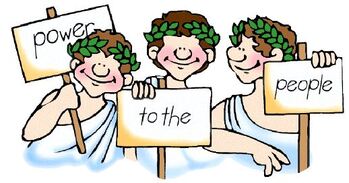 In political thrillers it may seem obvious to align your characters to a political party, but that way lies madness. No matter on which side you place them, someone is going to take offence, especially if it is hinted that everyone who supports a similar political line is tarred with the same brush. Make a politician corrupt or venal and suggest that they belong to party X and not to party Y, and you are bound to upset all the supporters of party X. That could be up to 50% of the reading public in some countries. Making religious figures corrupt or evil is just as bad. 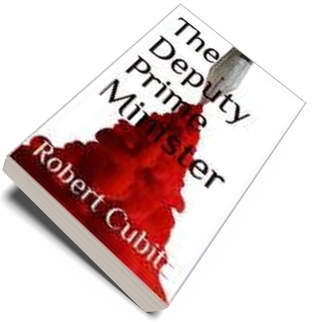 One of our authors wrote a political thriller and left the actual politics ambiguous. After all, personal greed and ambition are not limited to one party or another, because it is the individual that is greedy or ambitious. A study of scandals relating to the conduct of individual politicians will reveal that no party ever comes out of things squeaky clean. (We’re not going to name names, for the reason with which we started this blog). So, when it comes to politics, religion and other topics where people are divided, if you decide to dabble, either on social media or in your books, take care because you are entering shark infested waters. And if you feel you really must nail your colours to the mast on social media, write under a pen name so no one knows who you really are, or use a fake name on social media. If you have enjoyed this blog, or found it informative, then make sure you don’t miss future editions. Just click on the button below to sign up for our newsletter. We’ll even send you a free ebook for doing so. 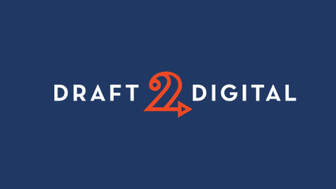 Big news - we have recently put some of our titles onto Draft2Digital. We decided to do this because, by keeping them exclusive to Amazon, we were actually narrowing our sales channels when we should really be going wider. Not everyone uses Amazon to purchase their books, so we were losing quite a lot of opportunities to offer our titles to those people. There was one advantage to using Amazon. That was their KindleUnlimted (KU) programme. We get a lot of downloads through KU and they account for a significant proportion of our revenue. But if we put our ebook product onto other distribution platforms, we aren’t able to use KU, so we risk that income. And yes, Amazon do check the other retailers to make sure we aren’t cheating.*  So, we analysed our income by title and it didn’t take a lot of time to realise that many of our titles aren’t read using KU, though they are purchased in ebook or paperback format. For some reason those books don’t seem to attract KU readers. Five of the titles are non-fiction and that may have something to do with it. The remainder do get the occasional KU download, but not enough to justify us making them exclusive to Amazon. OK, back to basics; just who are Draft2Digital (hereafter referred to as D2D)? Basically, they are similar to KDP in that they allow Indie authors and small publishers like ourselves to upload their books to them, which they then distribute to retail channels. They also offer formatting services, cover creation (not cover design as such) and a few other whistles and bells. But their big selling point is that they distribute books through a wide range of on-line retailers.  How many? Here’s the complete list (at time of writing): Apple Books, Barnes & Noble, Kobo, Scribd, Smashwords, Tolino, Overdrive, bibliotecha, Baker & Taylor, BorrowBox, Hoopla, Vivlio and Palace Marketplace. They will also distribute via Amazon if your book isn’t already on there, so it really is a “one stop shop”. Several of the companies listed above are aimed at the book borrowing market rather than the retail market, so in that respect they are similar to KU. I’m not suggesting that is 100% of the on-line book market, but it is a lot more than Amazon by itself. If you are considering distributing your book as an audio title, they also offer audiobook services, including helping you to find a narrator. This service may be cheaper than ACX.com, but only marginally (see previous blogs on the subject of audiobooks). 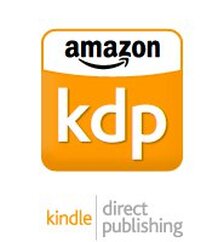 So, what is D2D like to work with? First of all, using the files we had already uploaded to Amazon caused us problems. Any reference to Amazon in the MS caused it to be rejected, as did references to ebooks in paperback MS’s. As we often insert a preview for another book at the end of an MS, with a link to its Amazon sales page, this meant having to go back and remove those references and links. You may also have to remove contents pages if you want D2D to insert a contents page complete with hyperlinks. The same applies to copyright pages, dedications etc. however, you can opt to use the ones that are already embedded in your files.  If you already have a cover for your ebook then it will probably upload OK to D2D, but when we uploaded our paperback covers we had some rejected because the back cover blurb was “blurred”. We had used shadowing behind the text and D2D’s quality bots couldn’t handle that. They also reserve more space for an ISBN than Amazon, so if any text encroaches into that space it will result in the cover being rejected. Paperback covers also have to conform to the D2D standard trim size, which is 5.5 x 8.5 inches (14 cm x 21 cm). If your covers are bespoke, created for you by a designer, you may have to go back and get them to adjust the size. However, if you created your own cover using packages such as BookBrush, you can alter the size yourself (don’t forget to adjust the positions of the text). I guess that sort of thing is all part of the learning curve for a new app, but it was frustrating and continues to be so as we have to change our cover designs and edit our MS’s in order to overcome these issues. 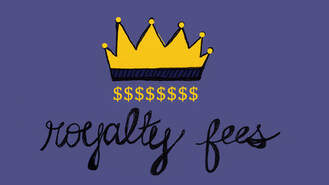 What about royalties? As with Amazon, you can set your own price for your books, which means you have control over the amount of royalties you receive once D2D and its partners have taken their share of the sale price. Unlike Amazon, which has two options for royalty percentages, D2D has only one, which is the sale price minus distribution charges. You also have the capability to run price promotions for ebooks and you can price your book to make it free, but not on Amazon. The price for Amazon will automatically be set to a minimum of 99c (99p). What is worth noting is that the printing costs for paperbacks seem to be much higher on D2D, which makes them less competitive than Amazon. To reduce the price to what you may have set on Amazon, you would have to reduce the amount of royalties you earn. In some cases it may not be possible to price-match to Amazon and still earn any royalties at all. Conversely, you could increase your paperback prices on Amazon, but that may make them less competitive compared to works by other authors. If you aren’t as famous as J K Rowling, you can’t charge J K Rowling level prices. 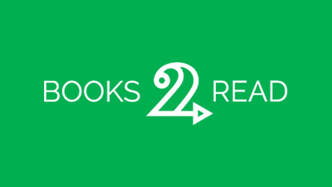 In terms of marketing tools, D2D has a partner site called Books2Read (hereafter referred to as B2R). It's basically a resource for readers to use to find books they may like. When your book is published its details are automatically copied across to B2R along with a “universal book link” (UBL) that allows the reader to go direct to their preferred retailer in their preferred country to buy the book. One of the tools B2R offers to authors is “new release notifications”. These are automated emails sent to readers who are registered on the site and who are signed up to your profile, so once you have uploaded your book, this tool helps your readers to find it. This is something I think gives D2D a real edge over Amazon, because any marketing you do through them has to be paid for.  OK, it’s a one shot deal, but one shot is better than no shot at all. It’s also fully automated, so you don’t have to do anything except register your book for the notification system and D2D has a pop-up for that which appears when you press the "publish" button.. You’ll know when the email notification has been sent, because you’ll receive a copy. Other than B2R there are no real marketing tools for you to use. They don’t have an equivalent to Amazon Ads, which is a shame. Somehow I think D2D is missing a trick here and is also limiting the ability of authors to market the books they have so painstakingly uploaded onto their site. On the other hand, it does create a “level playing field” for all their authors, because you can’t “buy” success through advertising. Everyone has the same chance of being discovered if readers are looking for their genre of books. Of course, you still have the option to advertise your books using other channels, such as Google, Facebook, Twitter et al. Make sure you include the UBL in your advert so that readers buy it through D2D rather than go looking on Amazon.  So, has this switch resulted in thousands of new sales? Well, it’s early days yet. What I can tell you is that we had sales within days of uploading our first book to the site. Not many, I’ll admit, but sales are sales and we hadn’t done any marketing work for the book. Readers found them for themselves and that rarely happens on Amazon. We’ll let you know more when we start to get some results worth talking about. In the meantime, check out D2D for yourself and see what you think. It costs nothing to look. * We know Amazon (actually their bots) goes looking, because we got a “cease and desist” email from them for one of our books which was uploaded to Smashwords some years ago and we had forgotten to take it down when we enrolled the same title on KU. Amazon threatened to withdraw our earnings for the book if we didn’t unpublish it from Smashwords. They’d actually found the book on the Barnes & Noble website, who Smashwords were using as one of their distributers. If you have enjoyed this blog, or found it informative, then make sure you don’t miss future editions. Just click on the button below to sign up for our newsletter. We’ll even send you a free ebook for doing so.  Timing is everything in life, but even more so for Indie authors who are trying to promote their books on a limited (or even zero) budget. Here at Selfishgenie we track our sales on a day by day, week by week, month by month basis so that we can work out when is the best time to advertise our books. Some days we see more people buying books than on other days, so they are the days we want to advertise, so that we can catch the readers' attention on the days when they are buying. That doesn’t mean to say we don’t advertise books on other days. After all, people are all unique and each person has their own shopping habits. But we know that, in broad terms, there are days when more people buy books than other days. Those are the days when we may consider increasing our advertising spend. I’ll go into why those variations exist in a moment.  By tracking people’s book purchasing habits over a longer period of time we can also work out when to do promotions. Again, I’ll go into why that may be in a moment. But that same timing issue extends to when we should launch our books. There are some months of the year when it is better to launch a book than others. I’ll be talking about the UK here, but the same rules probably apply wherever you live. All you have to do is adjust to suit your calendar. June and early July are a good time to launch a book in the UK. Why?  Because the majority of people take their vacations in July and August and will be looking for something to read while they hang around in airports, sit in their aircraft seats for several hours and then lounge around the swimming pool at their destinations. For some people this may be the only time of the year when they actually have time to read a book. This is particularly relevant for the ebook market, because no one ever takes enough books with them on holiday, so they’ll be logging their Kindles into the hotel Wi-Fi to buy even more books for the second half of their holiday and for the return journey.  Children's books - yes for July, no for January. Children's books - yes for July, no for January. Children’s books are especially popular at that time of year, because parents are desperate to keep their children occupied while travelling and during the school holidays. The first quarter of the year, on the other hand, is very bad for children’s books because (a) they are back at school, (b) they still haven’t read all the books they received from loving relatives at Christmas and (c) money is tight during the first quarter (see more below). If your books are aimed at the older reader, you will probably want to launch your book in August, because all those grandparents who have been on child minding duty over the long summer holiday period are suddenly free to go on holiday themselves in September, when the kids go back to school. I know, because that’s when I go on holiday and the hotels I go to appear more like old folks’ homes than holiday resorts. There are very few people there who are under fifty and those that are there either have no children or have children who are still too young for school. 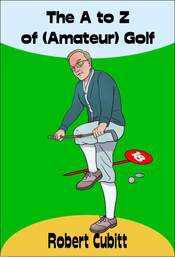 Here’s a tip for you, if you write books in a series. Take a paperback copy of Book 1 with you when you go on holiday and leave it in the hotel (most hotels have a shelf of books for people to borrow). You may snag a new reader for the rest of the series that way. Obviously the seasonal issues mentioned above are applicable to advertising spend as well as book launches. In November and right up to mid-December 2022 we promoted our golf book as a Christmas present for golfers and made quite a few sales that way – more than the whole of the rest of 2022 put together. If you want to know more about the best time to launch your books, broken down into genres, we found this helpful article. But there are others if you do a search. So, what is the best time to advertise?  Books are a popular Christmas present, so giving your advertising a seasonal boost may pay dividends and, of course, we’ve already mentioned the summer season. Think about advertising romance in the run up to Valentine’s Day and promote books as a gift for Mothers’ Day and Fathers’ Day But what about routine, week-in-week-out advertising activity? We found Friday to be the best day of the week to advertise, as that is when people go to look for their weekend reading. Weekdays are generally “early to bed days”, both for children and adults, but at the weekend a lot of people catch up on their reading and to do that they need books. Hence higher sales figures for books on a Friday.  You can even refine that down a little bit if you want. Come lunchtime everyone is thinking about finishing for the week, so they may start browsing the book listings from lunchtime onwards, so you don’t need to spend so much money in the morning. Sunday evening is also a good time, especially for paperbacks. Come Sunday evening a lot of people have either finished their books or are getting close to finishing. The “forward planners” will be thinking ahead and looking towards the following weekend. Paperback readers will be ordering on Sunday evening so that their books are with them by Friday. At the other end of the scale we have noticed we get far fewer sales on a Saturday and a Monday. Saturday is probably slow because people have a lot of family things going on as well as shopping, sport and general leisure activities. Monday probably because people are back at work and won’t have much time to think about reading. 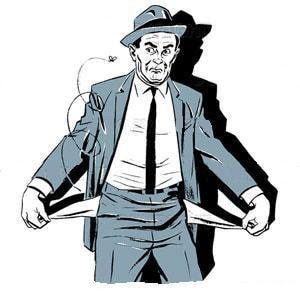 Certain times of the year are better than others for promotions. January and February* are the months when the Christmas chickens come home to roost and those credit card bills for all the holiday spending land on the mat. Energy bills are also at their highest. This means people have less money to spend and one of the places they can cut back is on their book purchases. We have seen consistent reductions in income during the first two months of the year since we started our business. So, this is a great time to do a price reduction or free book promo – especially free! Everyone can afford to buy a book that is free! Again, I’m talking to the series writers mainly. Give the first book in the series away at a reduced price, or for free, and there’s a good chance that if the readers like it, they’ll come back for the rest of the series -at the normal price - when they have a bit of disposable income in their pockets once more.  This is where you have to manage your marketing activity very carefully. No one can download a free book unless they know it is available. So, you have to be prepared to do some marketing. Social media marketing is free of course, but evidence suggests it is becoming less and less effective as a marketing channel.  Conversely, Amazon Ads, Facebook Ads, Google Ads etc are quite expensive, and you don’t want to spend a lot of money to give something away for free, even if you are going to get the money back later in sales for Book 2 onward. There is a happy medium and this is where book promotion sites come in. This year we used Book Reader Magazine and found them to be both cheap and effective. We are NOT recommending them and there are plenty of other, similar, sites who do the same job. You’ll find a list of some of them here. That site also offers some promo codes so you can reduce the cost. Book Reader Magazine cost us $15 (approx (£13) when we used a promo code and we got plenty of downloads as a result.  What was the outcome (because that is what is important)? During the first week of March we saw a massive surge in sales of the series we gave away. Some of that increase may have come about because people had a bit more cash available, but the majority of it is likely to be because they had downloaded Book 1 for free and wanted more of the same. It’s an 8 book series (so far) and we make a profit of about £3.50 per book. So, snagging one new reader that way not only repaid our investment, it gave us about an 80% profit. 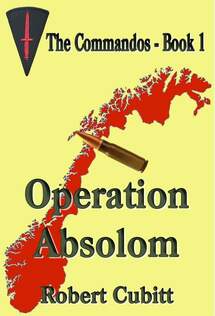 I can assure you we snagged way more than one new reader. Regardless of the season you will need to continue with your advertising at other times if your books are listed on KindleUnlimited (KU). As it’s a subscription service, readers want to get value for money from it and you want the books they download to be your books, so you have to keep pitching to them. You can expect to see KENP page reads going up during January and February as readers opt not to buy books if they are already KU subscribers. Most mainstream publishers don’t use KU, so this is a great opportunity for Indie authors to get their books read instead. However, you may want to reduce your advertising spend a little to reflect the reductions you’re going to get in ebook and paperback sales during the same period.  At this point I have to add a “health warning”. The results I’ve talked about above relate to the books we sell. You may want to analyse the sales data for your books to see if they conform to that pattern – or if they are different. We suspect that there will be similarities, but we can’t guarantee it. * Traditionally January and February were known by London taxi drivers as the “kipper season”. Kippers (a type of smoked herring) used to be a cheap food and taxi drivers ate a lot of them when their income was reduced during the first two months of the year. Presumably they would call it “pot noodle” season now. If you have enjoyed this blog, or found it informative, then make sure you don’t miss future editions. Just click on the button below to sign up for our newsletter. We’ll even send you a free ebook for doing so. This week, Selfishgenie Publishing hands over its blog to Robert Cubitt, one of our authors, who returns to tell us about his experiences in publishing an audiobook. All Views expressed are those of the author and do not necessarily represent the views of Selfishgenie Publishing.  Back in December 2022 I wrote a blog about dipping my toe into the audiobook market and whether it was right for Indie authors, given the expense of employing a professional narrator (starting prices are around £1,500 ($1,600)). You can find the original blog in the December 2022 archive. At that time, I promised to get back to you to talk about the outcomes, so here I am. I’d like to be able to report that I had a great response to the audiobook and sales were phenomenal, but I would be lying. I have made some sales, but they aren’t anywhere near as many as I hoped, or as they needed to be to recoup my investment.  I put the blame squarely on ACX.com, the platform that the books are distributed through. They are a subsidiary of retailing giant Amazon. They offer no assistance with marketing. This is remarkable, considering that ACX.com can only make money if authors are able to sell their audiobooks. Users of KDP will be familiar with the range of marketing tools that the site offers, including access to Amazon Ads. But there are no equivalents on ACX.com. Amazon Ads are available for audiobooks in the USA, but I don’t live in the USA and my audiobook isn’t aimed at the American market (but American and Canadian readers are welcome to listen to it - see below for more information). So, not much help here in the UK. But even if I wanted to sell my audiobook in the USA, that marketing channel isn’t accessible through ACX.com. There is no link from one to the other. BTW Chirp, the audiobook channel of the book marketing site BookBub, also operates only in the USA and Canada. So, not much use to us 400 million Europeans then.  The little bit of advice that is offered by ACX.com is in their blogs. I can sum it all up in three bullet points: - Find some reviewers, - Use social media (including paid advertising). - Pay audiobook promotion sites (but none are recommended so you pay your money and take your own chances). The only practical help they provide is a batch of promo codes for free giveaways of your audiobook, presumably to give to those reviewers that are queuing up to offer their services for free (sarcasm), but they offer no channel through which to distribute those, so once again the author is left high and dry.  The whole point of using Amazon Ads to sell a book is that the ads are targeted directly at people who are already looking for books to buy. The problem with advertising using social media is that people seeing an ad on the social media feed (a) might not be looking for a book to buy and (b) they have to leave their social media browsing in order to buy the book even if they are interested. Getting people to leave their social media browsing acts as a barrier to sales. If I, a humble amateur marketeer, know that you would expect the professional marketing people at ACX.com and Audible to know that too, and to follow the lead of Amazon to remove that "advertising by proxy" barrier to sales. But they don't. Or, if they do know it, they don't consider it worth the bother to do anything about it. I have to say I find this quite remarkable. After all, if the author can’t market their book, ACX.com doesn’t make any money from the book either. You would think they would be moving heaven and earth to help authors to market their books. Not only that, but the marketing activity itself can be monetised to produce revenue for them.  The faceless corporation. The faceless corporation. I don’t know who actually runs ACX.com and Audible, but they aren’t very business-like if they are finding ways of NOT making money. In addition, I have found their customer service to be less than professional. Their stock answer to every question or problem seems to be “try asking someone else”. Again, they seem intent on not helping their company to make money. I’ll give you an idea of just how unhelpful ACX.com is. After doing a Google search, I found this blog article (I couldn’t find it on ACX.com itself) about creating an Audible author page. Good idea, I thought. I’ll click the link and do that. The trouble was, there is no link. And I can’t find out how to do it through the Audible website because that is aimed at listeners, not authors. 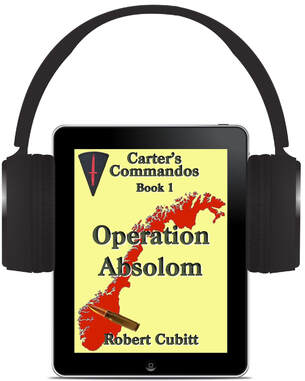 So, unless you are very good at marketing your books, you will probably struggle just as much as I have with trying to find any listeners for your audiobooks if you distribute through ACX.com. Now, you may be questioning the quality of my book at this point. After all, nobody can sell a bad book, even in audio format.. A fair observation and if the ebook and paperback versions were selling equally badly, I would agree with you. However, that isn’t the case. Operation Absolom is my biggest revenue earner, and it is so successful that the royalties from it are what paid for the production of the audiobook in the first place. Given the level of investment required, you can work out for yourself how successful the book has had to be in order for me to make the decision to produce the audiobook. 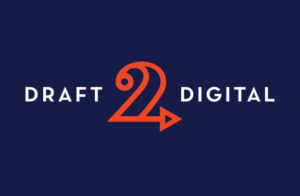 There is a slightly cheaper option. Alternative self publishing book distribution site Draft2Digital (D2D) have their own panel of narrators who offer prices from around $135 (£120) per narrating hour, giving an overall cost of approximately $1,400 (£1,300) for a 300 page book. I haven’t used them for audiobooks (I have for ebooks and paperbacks) and if you do then you can’t receive the higher (40%) royalty rate from ACX.com if you also distribute through D2D. However, it does provide a wide distribution channel, so it may be something you wish to consider. If you already distribute an audiobook through ACX.com you can also put it on D2D (using the same audio files), but you will have to reduce your royalty option on ACX.com to the 20% level. But there are no marketing tools provided by D2D either, so you will encounter the same problems when it comes to helping listeners to find your books 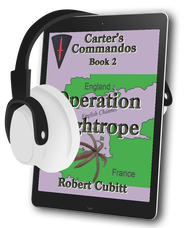 So, am I advising Indie authors not to venture into audiobooks? No, I am not. This is a growing market and Indie authors can gain an advantage by getting their books into audio before it gets too big and swamps us all. But I am advising Indie authors to consider how they are going to market their audiobooks before spending all that money, because you will get precious little help from ACX.com and D2D. If you can’t crack the marketing nut before you invest heavily in your audiobook, then it is probably advisable to proceed with caution. What about me? Am I giving up on audiobooks? No, I’m not. In fact, I’m doubling down. Book 2 to of the Carter’s Commandos series, “Operation Tightrope” is already live on Amazon, Audible and iTunes. . Again, I’m invested my royalties from my ebooks and paperbacks to cover the narration costs (more proof of their continuing success). Now I’m going to crack that marketing nut if it kills me. If I succeed, I’ll be sure to come back and let you know, so you can do it too. If you do decide that you want to get into the audiobook market, then I wish you every success. If you have enjoyed this blog, or found it informative, then make sure you don’t miss future editions. Just click on the button below to sign up for our newsletter. We’ll even send you a free ebook for doing so. 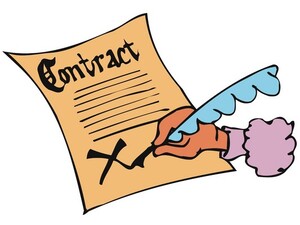 It is the dream of all Indie authors: to snag an agent or a publisher and get that elusive publishing deal. Yet so few Indie authors are able to fulfil that dream. But it is achievable, and it is probably easier than you think. However, it is also somewhat counterintuitive to do what is necessary to fulfil the dream. It may also require the author to make a few compromises. OK, if it’s that easy, tell us the secret, oh Selfishgenie. OK, we will.  The first thing you have to do is recognise that publishers hate taking risks with new authors. Risk threatens to reduce profits and there are stories in the industry of publishers being left with warehouses full of books because they took a gamble on a new author that didn’t pay off. These stories are probably apocryphal, but they are enough to give publishers nightmares. In that case how do new authors ever get signed? The answer to that is that it isn’t always the author themselves that represents the risk. It’s the type of book they are writing. The author may be the next Ernest Hemingway or Hilary Mantel in terms of the quality of their writing, but if they aren’t writing the sort of books that readers want to read, then they will never become bestselling authors. It is quite possible that in today’s market, Hemingway would also be unable to find a publisher because his type of books aren’t selling these days (my speculation, of course) Which is why new those authors represent a risk. This is where things become counterintuitive.  You may think that to get that elusive publishing deal your book has to be different from what is already out there in the bookstores. You would be wrong. It's the exact opposite. Your book has to be the same (or at least similar) to what is already out there. To de-risk their industry, publishers follow the reading fashions. If J R R Martin’s books are selling, then publishers are hungry for books just like his. If Lee Childs’ books are selling, then publishers will also be hungry for books like his. So, if you want to snag that elusive publishing deal, your books have to follow the fashion. By publishing books that are what the public is reading at that moment, publishers are able to de-risk their products Give the public what they want and they’ll come flocking to your door. 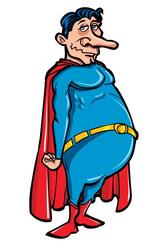 We already see this in cinema, of course. In the last decade, 5 of the top 10 box office hits were superhero movies, four of which were from the Avengers franchise and the 5th was Black Panther. Of the remaining 5 one was from the Star Wars franchise, another was from the Jurassic Park franchise and two more were Disney films, which are always popular. If that’s what the public wants, is it any surprise that we get so many superhero films, Star Wars films, Disney films et al? And the same applies to books. This desire to follow the fashion then feeds back to agents. If publishers want a particular type of book, then agents will want to find authors who are writing that type of book. Because it is easier, and more lucrative, to sign authors who are writing the sorts of books that publishers are looking for. So, sending an agent something different is not going to get you signed. Of course, going to Bloomsbury or Scholastic Press and offering them a Harry Potter clone isn’t going to help the Indie author. After all, those two publishers already have the original Harry Potter. No, you need to approach a publisher/agent that hasn’t got Harry Potter and offer them your clone.  At the same time as responding to fashion, publishers also create reading fashions. After all, if all the publishers are producing Harry Potter clones, then that limits the choice for readers, so they buy them even if they would actually welcome a change. We see this each year with clothing fashions. If manufacturers decide that green baseball caps are going to be “in” this year that is what they will produce, and they will pay “influencers” to get the public to wear them. Pretty soon all you will see will be green baseball caps! Then, next year, because everyone already has a green baseball cap, they’ll switch the colour and repeat the trick so they can sell more product. And we fall for it, so we only have ourselves to blame. Exactly the same methods apply with books. But you don’t want to write Harry Potter clones or Jack Reacher clones, do you?  You have your own story ideas and those are the ones you want to work on. You have “artistic integrity” and you won’t be dictated to with regard to your plots, your characters or your writing style. OK, I respect that. But artistic integrity doesn’t put food on the table. When you are a big name writer you have a bit of power that you can exert. Your name alone will sell books. That means your publisher is likely to be more flexible about what they will buy from you. And if they aren’t flexible, your name is big enough to open doors to other publishers who might allow you to write what you want, because you no longer represent a risk. You are “box office”, as they say in the movie making world.  It’s the reason why celebrities who can barely write their own names are able to get publishing deals. It’s not the quality of the book that sells it, it’s the name on the cover,. But you have to be a “name” first and that may mean compromise. Write what the publishers want now, so you are granted the freedom to write what you want to write in the future. So, what should you be writing right now in order to snag that contract? The answer to that is likely to change from month to month and year to year, which isn’t helpful. The best sellers list on Amazon will tell you what is fashionable right now as will the Sunday Times (or New York Times in the USA) best sellers list, but that won’t tell you what will be fashionable in 6 months’ time when your book is ready for querying. Fortunately, fashions in reading change quite slowly, certainly slower than they do in clothing, so you probably have time to get on the bandwagon with your next book. The top three genres (UK) to write in are Crime and Thrillers (33% of the market) , Fantasy Fiction (22%) and Action & Adventure (20%). There are, however, subdivisions below those headline genres and not all of them are as popular as others. But what you will probably notice is that the most popular books right now are character led, not plot led. Less popular at the moment are Modern Classics (No idea, but they are only 11% of the market), Horror (11%) and Short Stories (14%)* Some genres are so unpopular that their market share doesn’t even register on the graphs.  Some publishers do allow themselves to take a few risks. They look for good new writers and offer them publishing deals. However, they won’t throw a lot of money into marketing their book. At least, not the first one. The first print run of the hardback version of Harry Potter and the Philosopher’s Stone was only 500 books, most of which went to libraries. That’s how much faith Bloomsbury had in J K Rowling for her first book. Fortunately it was the American market that saw its potential and made her the best-seller she is, while the UK market caught up later. So, yes, you might find an agent and a publisher willing to take a risk on you even if you aren’t writing whatever is fashionable. But it is probably going to be a harder furrow to plough. * Figures for 2020, the most recent we could find from a reliable source. If you have enjoyed this blog, or found it informative, then make sure you don’t miss future editions. Just click on the button below to sign up for our newsletter. We’ll even send you a free ebook for doing so. 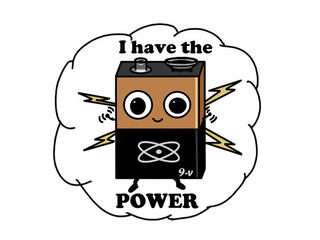 In last week’s blog I discussed what made up a culture, because it is so important when it comes to anchoring both your fictional world and also your fictional characters. In several places I used the word “power” as something that was needed to exert control. Who holds power and how they use it is an important part of culture as it shapes the way people behave, which is why culture is important in a novel. Understanding power is also very important in developing characters and plot, as I hope to demonstrate. Give the right characters the right levels of power in the right form and at the right time, you can do anything in a plot. A lot of that power isn’t actually held by the protagonist or antagonist, it is held by other characters, which makes for a more complex, and therefore more satisfying, plot.  Is your protagonist powerless? Is your protagonist powerless? However, this makes it sound as though there is only one sort of power. It is clearly visible in an antagonist, who arrays all sorts of powerful forces in order to frustrate the protagonist. However, this would suggest that the protagonist has no power of their own. If that were true, then the protagonist could never come out on top in a novel. In order to overcome power, the protagonist must have at least the same level of power. Either that, or they must be able to strip the antagonist of their power, in order to provide an equal “match up”. This can be seen in Lord of the Rings, where Frodo’s allies keep the Dark Lord diverted, concentrating on battles further away, while Frodo and Sam sneak into Mordor by the back door. They use alliances to create a large enough power base to take on Sauron. Stripping power away from the antagonist by a weaker force is demonstrated in two films. The first is Star Wars, where a single X Wing fighter destroys the Death Star. The same trope is used in Independence Day when Will Smith and Jeff Goldblum plant a nuclear device inside the aliens’ mothership, robbing them of their defences. 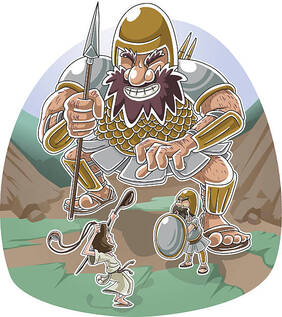 What sort of power did David use to slay Goliath? What sort of power did David use to slay Goliath? Both these acts render the antagonist(s) powerless, allowing the protagonists to triumph. Both of those are really David and Goliath stories told a different way. But when he accepted the challenge of Goliath, David knew something that Goliath didn’t. He knew he possessed “expert power” (see below). And if you think that power games are only the tools of action adventure novelists, then think again. It requires power of some sort to thwart the lovers in a romance. It just isn’t the sort of power that comes from the barrel of a gun (well, not usually). So, what sort of power can the author use to win the conflicts into which we send our protagonists? Studies of power structures have been carried out in business so that they can be understood. But don’t assume that they only apply to business. Businesses are made up of people and power is only of use if it can be used to control or influence people. Politics works pretty much the same way and if you belong to any sort of organisational structure, right down to the village darts team, you will encounter some sort power being used to some degree.  The fact that you don’t always see that power being wielded is a mark of how subtle its use can sometimes be. You don’t always have to plant a nuclear device in an alien spaceship in order to wield power. What types of power are there? Amarjit Singh PEng F.ASCE published a paper in 2009 which analysed this question, drawing on the findings of several other researchers. He studied several sources of power. 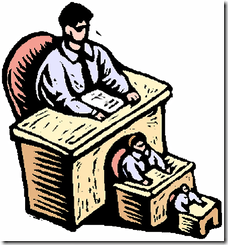 First we have legitimate power, aka positional power. This is power that “comes with the territory”. A Prime Minister or President will wield that sort of power, as will the CEO of a company. This is the sort of power that we are familiar with, because even the Evil Emperor will regard their power as being legitimate. After all, there is no one (they think) that can deny them their power. Crime bosses exercise what they regard as legitimate power, backing it up with violence and the use of weapons when needed. Just like Presidents or Prime Ministers who take their countries to war. The circumstances may be morally different, but the same sort of power is applied to make it happen. The police hold legitimate power, because they are established under laws passed by the government. However, they can also abuse the power invested in them. Within any organisation there are people who hold power. The amount of power may vary depending on their pay grade, but they all have it to some degree. Even the guy or gal on the production line has the power to bring it to halt if they walk off the job. So that one was easily dealt with.  Being able to bestow rewards is a source of power. Being able to bestow rewards is a source of power. Next we have “reward power”. Even a quite junior manager can exercise reward power, deciding who will receive bonuses, who will get a promotion and who won’t, right down to who gets the easy work and who gets to clean out the sewer. That sort of power makes sure people do what the manager wants them to do. A lot of this power is delegated from above, but it is something that can be used or abused. But ordinary members of the public also use reward power. We tip waiters and cab drivers for good service – and they know that if they do a good job they’ll get their tip. (I know this is different in the USA where everyone gets a tip regardless of whether they provided good service, but I’m not in the USA). That means the customer holds the power to control their behaviour. We may offer a Maitre D a small bribe to find us a better table (or any table at all). We also use reward power when we decide to go back to the same restaurant because they provided good service or avoid a restaurant that gave bad service. We call this “consumer power” and we all have it to a certain degree. All we have to do is adapt the concept for our novels. The prospect of a reward can get people to do what we want in a story. Treasure Island is based on the idea that if the crew of the Hispaniola cross the world with Squire Trelawney, there will be a reward at the end of it, when the treasure is found. That is a clear use of reward power in a novel.  Coercive power is fairly self-explanatory. It is based on fear. “Do what I tell you, or it won’t go well for you”. This isn’t seen in the workplace as often as it used to be, employment tribunals have seen to that (in the UK anyway), but it is still found outside the workplace. The coercion doesn’t just have to involve the threat of violence. Blackmail is a form of coercion, as are threats of isolation from the group – what we call “Being sent to Coventry”. There are probably other forms of coercion you can think of. Moral blackmail - convincing people "it's the right thing to do" - is also a form of coercion. What some people think of as persuasion or influencing can also be interpreted as coercion if it is taken beyond certain ill-defined limits. And, of course, coercion is often seen in bad relationships.  In the land of the blind, the one eyed man (or woman) is King. This alludes to expert power. If you know something, or understand something, that nobody else knows or understands, it is a source of power. This is often seen in wage negotiations. Back in the 1970s and 80s IT experts could pretty much write their own salary cheques, because so few businesses knew how to use computers. Today, however, that knowledge is commonplace and IT wage levels aren’t as generous as they once were. So expert power isn't always permanent. In fiction, we often make our protagonists experts in some field or another. Robert Langdon, the protagonist in the Da Vinci Code, is an expert in symbology. Tom Clancy’s protagonist Jack Ryan started out as an expert in interpreting military intelligence. Both are ordinary people at heart but become powerful through their application knowledge. In Lee Child's "Jack Reacher" novels, Jack is an expert in many fields. Even if we don’t make the protagonist an expert like Robert Langdon, we will give them special skills that they can use, such as being experts at unarmed combat. That is a source of power when they get into a fight and allows them to win. As mentioned much earlier in this blog, David had expert power which he used to defeat Goliath. He was an expert in the use of a slingshot, which negated Goliath’s size and strength. In cosy crime novels, amateur detectives outshine their professional counterparts by applying their expertise to solve crimes. Because they aren’t hide-bound by procedure, they can let their expert knowledge take them in directions the professional couldn’t or wouldn’t consider (at least, as far as fiction is concerned they wouldn’t consider). But in the end the amateur still requires the legitimate power of the police to make the actual arrest. So, you have two sources of power working within one book. If the murderer is also an expert in poisons, that is another source of expert power – which gives them the power to commit murder.  Charisma is a source of power. Its proper name is “referent power”. We often hear of charismatic leaders. We might also say that people admire or worship them. We see this a lot with celebrities, who use their referent power to become rich. Its basis is entirely due to how one person views another. If you don’t regard a person as charismatic (like a few politicians I could name), you won’t fall under their influence. People are drawn to charismatic people and are happy to help them. Charismatic people are therefore able to use that as a source of power, using their admirers to do their bidding. The only difference between the charismatic protagonist and the charismatic antagonist is what they ask their admirers to do. Robin Hood is probably the best known charismatic protagonist (if you are religious, it may be Jesus or Mohammed). In romance a common trope is the charismatic person who holds one of the star-crossed lovers in thrall. One way that charismatic power can be thwarted is to expose a character defect that hasn’t previously been visible, such as a cruel streak. It breaks the spell and sends the lover back to the one he/she should really be with.  You scratch my back and I’ll scratch yours, is otherwise called “reciprocal power”. It can also be called “resource power” as it usually involves a trading of resources. It requires both characters to have something that the other character needs. How valuable the resources are will influence the balance of power. In this case valuable doesn’t refer to intrinsic value, it refers to how much the character needs the resource. If you have the gun I need in order to go after the antagonist, I might be quite generous in what I offer in exchange. But the resource doesn't have to be physical. Politicians, for example, trade favours in order to gain support and to form alliances. In LOTR each of the fellowship has something that Frodo needs to help him get to Mordor. The most obvious is the magic wielded by Gandalf, but Frodo would have been helpless in the caverns of Moria without Gimli's knowledge. Aragorn is the King behind whom men rally. Even Sam Gamgee has something that Frodo needs – his bravery, steadfastness and determination. Without Sam, Frodo would never have made it into Mordor. And, in exchange for the resources that each of the fellowship provides, Frodo does the dirty work for them and carries the ring. There is even a conference at Rivendell where the negotiations are held, though it isn’t depicted as a negotiation.  What sort of power do you have? What sort of power do you have? So, as you can see, power isn’t something that is one sided. In addition, the sum of the power that the protagonist can bring to bear must be at least equal, if not greater, than the power of the antagonist. Either that, or you have to find a way of stripping the antagonist of their power. James Bond has to kill a lot of henchmen before he can go mano y mano with the villain, which is no different than getting a nuclear device onto an alien mothership. As an exercise, you might want to analyse the sort of power you are able to wield in different circumstances. For example, how much legitimate power do you have? How much resource power? How much reward power and how much referent power? If you are the only person in your place of work who knows how to use the photocopier, you have "expert power" - at least until someone else reads the user manual. Although we might not always feel it, we are all able to use power at some time in our lives, even if it is only every few years at the ballot box. If you have enjoyed this blog, or found it informative, then make sure you don’t miss future editions. Just click on the button below to sign up for our newsletter. We’ll even send you a free ebook for doing so. |
AuthorThis blog is compiled and curated by the Selfishgenie publishing team. Archives
March 2025
|

 RSS Feed
RSS Feed